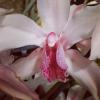April 6, 2015 - 17:16

I especially appreciated reading Sleeter's chapter after my experiences at my Praxis setting from the other week (which I had posted about and from which stemmed a long discussion in my blog group). One line that really struck me near the beginning was when she says that, "the role of the teacher is 'one of inciting the student to produce his or her own comprehension of the object.'" This stuck with me particularly because it reflected a lot of the things we talked about in my blog group last week, and was almost reassurance that my work as a facilitator in the Identity Club is not yet over and that, even though I may have disagreed with many of the things the students were saying about issues of race in society, I probably did the right thing in the moment by keeping silent and letting the students talk through it themselves. It is not my job to dump my knowledge and views on them, but instead to help them come to their own understandings, and that takes a lot of time, probably much longer even than this semester and my time with them.
In another vein, I guess one thing that I am particularly interested in talking more about regarding Sleeter's ideas on "students as curriculum" is how to do this in science. I think this also pertains a lot to my inquiry project and the question of how to make learning about the environment a personal and multicultural experience for kids. How can we prompt students to share stories about their experiences in the environment, particularly when some may have never interacted with it much (for example, kids from urban settings who have never had the means to travel elsewhere rural)? Certainly some students, depending on their cultural/religious backgrounds may have various connections to nature in tradition, and that could be an important way to interest those individuals in learning about environmental science. I guess one of the things I'm interested in with students as science curriculum, is how to practically make this work and get teachers to do this? Some of the things I'm picturing, hypthetically, for getting students to connect to learning science with personal stories have to do with presenting knowledge as slippery and engaging individual students' own observations and questions and ideas and teaching them science by having them work through the scientific process themselves and coming to understand the subjects in their own way, but in reality, it may be hard to get teachers to throw away their current ways of lecturing and presenting facts, etc. for a less structured and predictable approach to science - one in which the students questions guide the path of the course. Anyway, this isn't the most coherent post of ideas, I'm just sort of typing these ideas down as they are coming to me because my thoughts are all over the place with regard to this! Many things to talk about!
